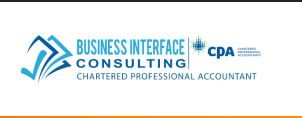Winnipeg's Emerging Accounting Trends: What Your Business Needs to Know
BF
Understanding the Shift in Accounting Practices
In recent years, Winnipeg has seen a noticeable shift in accounting practices. Businesses are increasingly adopting new technologies and methodologies to streamline operations and enhance financial accuracy. These trends are not just reshaping the accounting landscape but also influencing how businesses plan and strategize for the future.

This transformation is driven by several factors, including the rise of digital platforms, increased regulatory requirements, and a growing emphasis on real-time data analysis. As accounting becomes more intertwined with technology, businesses need to adapt quickly to stay competitive in the market.
The Rise of Cloud-Based Accounting Solutions
One of the most significant trends in Winnipeg's accounting scene is the adoption of cloud-based accounting solutions. These platforms offer numerous benefits, such as real-time access to financial data, improved collaboration among team members, and enhanced data security. Cloud-based systems allow businesses to manage their accounts from anywhere, providing flexibility and scalability.
Many businesses are moving away from traditional desktop software to embrace these modern solutions. This shift not only reduces costs associated with IT infrastructure but also ensures that businesses have access to the latest updates and features automatically.
Embracing Automation for Efficiency
Automation has become a cornerstone in Winnipeg's accounting industry. By automating repetitive tasks such as data entry, invoice processing, and payroll management, businesses can significantly reduce errors and free up valuable time for strategic activities. Automation tools are becoming increasingly sophisticated, enabling them to handle complex accounting tasks with ease.

This trend is particularly beneficial for small and medium-sized enterprises (SMEs) that often operate with limited resources. By leveraging automation, these businesses can focus more on growth initiatives rather than being bogged down by routine accounting processes.
Data Analytics and Business Intelligence
Another emerging trend is the integration of data analytics and business intelligence into accounting practices. Advanced analytics tools allow businesses to gain deeper insights into their financial health, identify patterns, and make informed decisions. By analyzing large volumes of data, companies can forecast trends, optimize budgets, and improve overall financial performance.
This data-driven approach helps businesses not only in compliance but also in strategic planning and competitive positioning. As a result, companies are investing more in analytics capabilities to gain a comprehensive understanding of their operations.

Sustainability Reporting on the Rise
With an increasing focus on environmental responsibility, sustainability reporting is gaining traction among Winnipeg's businesses. Companies are now required to disclose their environmental impact and sustainability efforts more transparently. This trend is driven by both regulatory requirements and consumer demand for corporate accountability.
Sustainability reporting provides businesses with the opportunity to showcase their commitment to ethical practices and responsible consumption. By integrating these reports into their accounting processes, companies can build trust with stakeholders and enhance their brand reputation.
Preparing for Future Trends
As Winnipeg's accounting landscape continues to evolve, businesses must remain proactive in adopting new trends. Staying informed about the latest developments in technology, regulations, and market demands will be crucial for maintaining a competitive edge.
Organizations should invest in training their staff on new tools and methodologies while fostering a culture of continuous improvement. By doing so, they can ensure that they are well-equipped to navigate the complexities of modern accounting practices.
